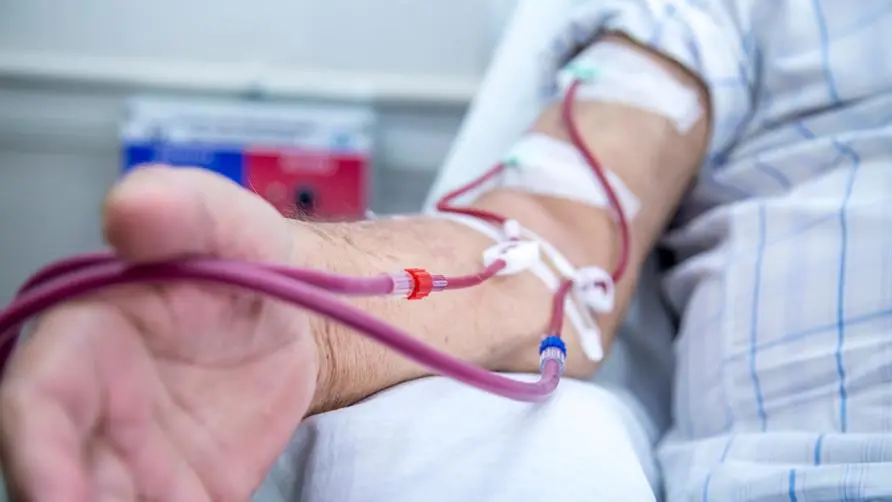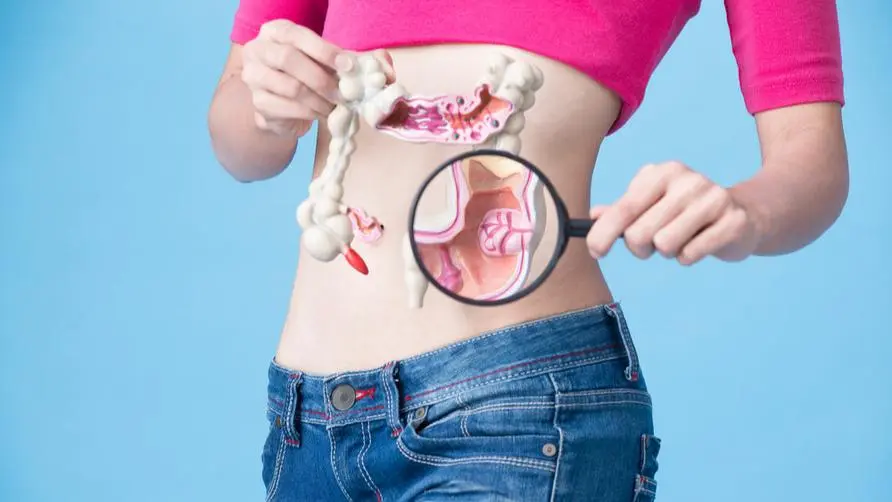1 in 10 people has irritable bowel syndrome? Doctor names "5 types of foods" to avoid

What are the types of irritable bowel syndrome? Are women more likely to develop?
Whenever you are stressed, you have to run to the toilet several times a day. Do you suffer from “irritable bowel syndrome”? Dr. Chen Junqin, director of the Department of Hepatobiliary and Gastroenterology at Guangtian General Hospital, explained that the current diagnostic criteria for irritable bowel syndrome are based on Rome IV regulations. When the symptoms last for six months, and there is recurrent abdominal pain in the past three months plus:
abdominal pain, the urge to defecate and the symptoms improve after defecation,
changes in stool shape,
changes in defecation frequency, only two out of the three will be diagnosed as irritable bowel syndrome.
Dr. Chen Junqin pointed out that irritable bowel syndrome can be divided into subtypes, mainly based on symptoms. “Diarrhea type” is diarrhea combined with abdominal pain, borborygmire, and bloating. There is less diarrhea at night, and the symptoms will be relieved during vacation. “Constipation type” is hard stool, flatulence, and abdominal pain, but it does not affect appetite. “Mixed type” is the alternation of the above two types.
Why does irritable bowel syndrome occur? Dr. Chen Junqin explained that stress or emotion accounts for about 50% of the factors, and is also related to eating habits, drug side effects, physical diseases such as hyperthyroidism, diabetes, pelvic inflammation, intestinal ischemia, etc. It may also be caused by hormonal influences or imbalances, or even an imbalance of intestinal bacteria.
Dr. Chen Junqin said that local data in Taiwan show that about 10%-20% of the population has irritable bowel syndrome, mainly young adults under the age of 40, and there are slightly more women than men. The reasons why women are at higher risk may be related to the pressure of family care, as well as the wider pelvic structure, which makes feces stay in the sigmoid colon for a longer time, and they are prone to constipation-type irritable bowel syndrome.
The root cause of irritable bowel syndrome is eating too much chewing gum?
To treat irritable bowel syndrome, it is necessary to find out the root cause. Dr. Chen Junqin pointed out that stress, emotions, drugs, food, eating habits, diabetes, and thyroid disease may be the causes. In addition, the possibility of other diseases must be ruled out, such as infectious gastroenteritis, colorectal cancer, gastric cancer, pancreatic cancer, neuroendocrine tumors, Crohn’s disease, ulcerative colitis, pseudomembranous colitis, parasitic infections, and less frequently See immune enteritis.
Since the symptoms of irritable bowel syndrome are similar to those of many diseases, the source of irritable bowel syndrome can only be truly found out based on a detailed medical history, symptoms, medication history, consultation with a specialist, physical examination, and supplemented by appropriate tests.
Dr. Chen Junqin gave an example. Recently, a young man came to see a doctor. He came to the company every day with abdominal pain, flatulence, burping, and diarrhea. After taking a medical history and preliminary physical examination, it was discovered that he rode a bicycle after breakfast every day, which caused him to swallow a large amount of air and increase gastrointestinal pressure. After changing his lifestyle, his symptoms improved.
Another young woman also suffered from irritable bowel syndrome. After seeking medical treatment, it was discovered that she chewed more than five pieces of gum a day, which caused excessive sorbitol to increase the osmotic pressure in the small intestine, leading to diarrhea and abdominal pain.
What foods should not be eaten with irritable bowel syndrome? Hypoallergenic diet improves symptoms
Dr. Chen Junqin said that people with irritable bowels are advised to eat low-fat foods, reduce dairy products, avoid eating too many foods that are prone to flatulence, such as beans and bread, and eat less high-sugar foods. Drink less stimulating drinks such as alcohol, coffee, and tea. It is best to quit smoking and avoid unnecessary medications such as antibiotics.
In addition, you should chew slowly when eating to avoid swallowing too much air. You can adopt a “Low FODMAP” diet and try to avoid foods containing large amounts of oligosaccharides, disaccharides, monosaccharides, and polyols to help improve intestinal discomfort symptoms. However, not all FODMAPs can induce irritable bowel syndrome. It is related to the individual’s intestinal sensitivity. If you have any doubts, you should first consult a gastroenterologist or nutritionist in the outpatient clinic.
Further reading:
What to do about gastroesophageal reflux? Can nutritional intake be improved? Avoid 6 Mine Foods





